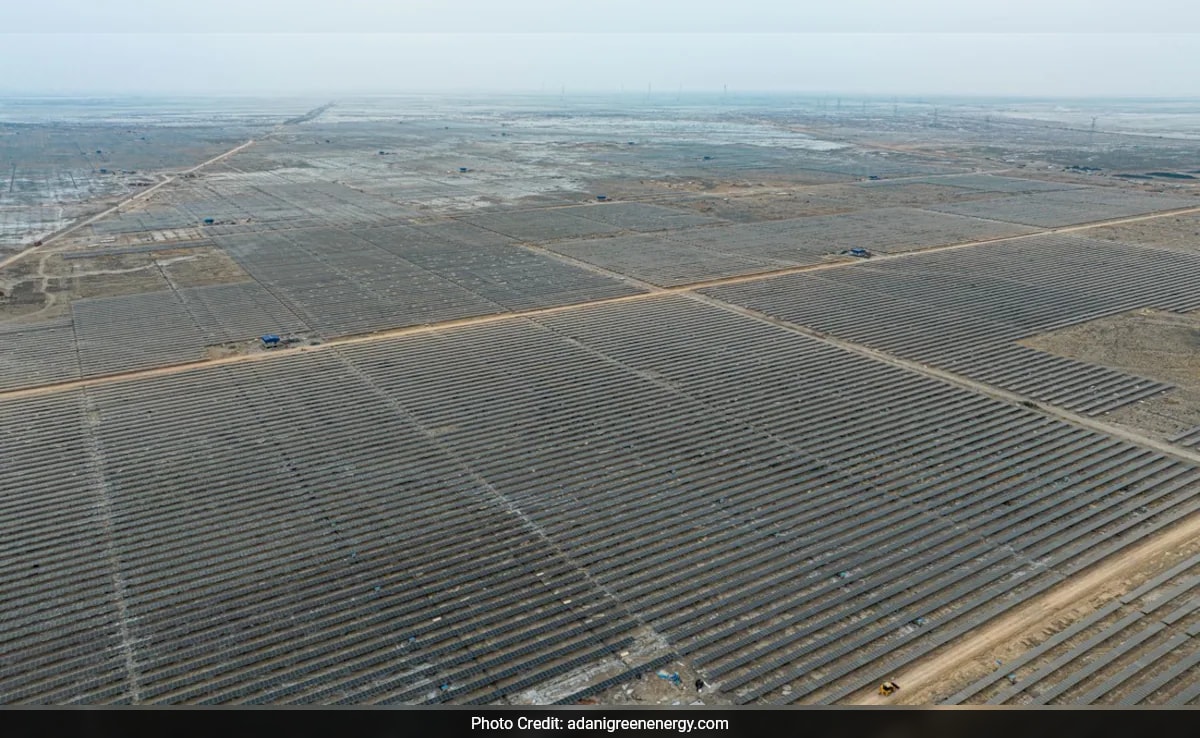In a groundbreaking development, India has inaugurated the world’s largest renewable energy park, situated in Khavda, Gujarat. Spanning over 538 square kilometers, the park dwarfs even major international cities like Paris, marking a monumental leap in the global push towards sustainable energy solutions.
Unveiling the Oasis in Barren Lands
Khavda, once a desolate stretch of arid land devoid of any significant infrastructure, now stands as a testament to human ingenuity and innovation in the renewable energy sector. Blessed with abundant solar radiation and wind speeds five times that of the plains, this unlikely location has been transformed into a thriving hub for renewable energy production.
Adani Group’s Visionary Investment
Led by the Adani Group, India’s largest renewable energy company, the Khavda renewable energy park represents a colossal investment of ₹1.5 lakh crore. With an initial capacity of 2 gigawatts (GW), the park is set to ramp up its production to an impressive 30 GW of clean electricity, reaffirming India’s commitment to green energy initiatives.
Pioneering Solar and Wind Technologies
The park integrates cutting-edge solar technology, boasting 26 GW of solar capacity alongside 4 GW of wind power generation. Leveraging India’s rich solar irradiation and optimal wind resources, the project aims to harness natural elements to produce sustainable energy on an unprecedented scale.
Sustainable Infrastructure Development
The development of Khavda has been a Herculean effort, requiring extensive infrastructure investments to support its colossal energy output. From the construction of roads and drainage systems to the establishment of desalination plants and reverse osmosis facilities, every aspect of the park has been meticulously planned to ensure long-term sustainability.
A Vision for a Greener Future
Beyond its immediate impact on India’s energy landscape, the Khavda renewable energy park embodies a broader vision for a greener, more sustainable future. With ambitions to generate 500 GW of electricity from non-fossil sources by 2030, India is poised to lead the global transition towards renewable energy and achieve net-zero emissions by 2070.
As the world grapples with the challenges of climate change and environmental degradation, initiatives like the Khavda renewable energy park serve as beacons of hope, demonstrating the immense potential of human innovation to combat the pressing issues of our time.
In conclusion, the inauguration of the world’s largest renewable energy park in Khavda, Gujarat, marks a significant milestone in India’s journey towards a sustainable and greener future. Powered by visionary investments, pioneering technologies, and sustainable infrastructure development, the park stands as a testament to India’s unwavering commitment to combat climate change and secure a better tomorrow for generations to come.
Source:ndtv.com





